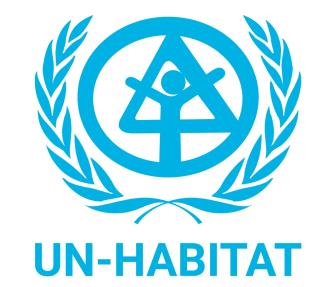Crises and humanitarian conflicts greatly impact the work of local government authorities close to conflict zones and migration corridors. For example, the City of Mehamra in Lebanon, originally a town of 4,000 inhabitants, is now home to 55,000 people, many of them displaced from Syria, Palestine, and other parts of Lebanon.
The Mehamra case was one of many presented in workshops around the WUF12 venue on the last day of the conference. While many high-level events had concluded by Thursday, the conference venue still buzzed on Friday with participants in roundtables and other events, as well as visitors to the Urban Expo.
Speaking to press ahead of the closing ceremony, UN-Habitat Executive Director Anacláudia Rossbach noted that the Forum had experienced record-breaking attendance, with more than 24,000 participants at the venue, four heads of state, 65 ministers, 96 mayors, and more than 700 partner-led events. She noted key themes that emerged: the critical urgency to address the global housing crisis; the need for financing to achieve better urban planning, land use, and sustainability; the value of sharing and learning from existing practices to accelerate action; and the power of partnerships.
Roundtables for Civil Society and Academia convened in parallel in the morning, while many other events took place in smaller meetings around the venue, showcasing practical solutions and steps forward. Several “One UN” events, led by specialist agencies, highlighted, for example, work done in policy and practice to: improve urban spaces for children; integrate refugees and internally displaced persons (IDPs) through socio-economic and local infrastructure initiatives; and achieve the greening of cities in North Africa and the Middle East to reduce the impact of sand and dust storms, improve food security, and fight climate change.
The Urban Expo—a showcase of many urban initiatives from around the world—continued running alongside the meetings. Visitors to the Expo booths were able to view whimsical sculptures and fashion items made from recycled materials, a life-size display apartment and photographs showing mid-20th-century Soviet public housing, and children’s drawings expressing hope for the future.
At the afternoon closing ceremony, UN-Habitat, hosts and partners expressed mutual appreciation for each other’s work.
Ibrahim Saber Khalil, Governor of Cairo, stated that WUF12 had provided opportunities to connect with counterparts from around the world, share Egypt’s rich cultural heritage, and exchange ideas and experiences.
Sherif El-Sherbiny, Minister of Housing, Egypt, expressed appreciation that many WUF12 participants had taken the opportunity to go on site visits to view urban developments around Cairo which demonstrate that housing can go beyond just constructing buildings to improving lives.
Egypt’s Minister of Local Development, Manal Awad, spoke of WUF12 as a forum for Egypt to reaffirm its commitment to international dialogue on sustainable development. She spoke of the country’s ongoing work to decentralize and increase funding for local authorities, and noted that virtual participation in WUF12 had boosted total participants to more than 40,000.
UN-Habitat Executive Director Anacláudia Rossbach pledged to convey the messages of the Cairo Call to Action to other multilateral forums, including the upcoming UN Climate Change Conference in Baku, Azerbaijan, which opens on 11 November.
Sahar Attia, Egyptian Member of Parliament, enumerated many of the highlights of WUF12, including the attendance of more academics and Members of Parliament than at any previous WUF, powerful exhibitions and events, and the presentation of many innovative ideas.
Elizabeth Espinosa, Indigenous youth representative, encouraged all youth activists to join her in contributing to global endeavors in which every voice will matter.
Manal Awad, Minister of Local Development, Egypt, introduced the 10-point Cairo Call to Action, which calls for urgent action to address the global housing crisis and affirms the need for “sustained and systemic representation of communities as political actors in local and national decision-making processes.” Speakers then jointly launched this conference outcome.
UN-Habitat Executive Director Anacláudia Rossbach declared the Forum closed at 5.40 pm.
One UN: Public spaces for children
Civil Society Roundtable
One UN: Greening Near East and North African Cities to Combat Climate Change
View of the panel during the speech of Carol Chouchani Cherfane, Director, Arab Centre for Climate Change Policies, and Lead, Climate Change and Natural Resource Sustainability Cluster, UN Economic and Social Commission for Western Asia (UNESCWA)
Abdul Hakim Elwaer, Assistant Director General and Regional Representative, Near East and North Africa

